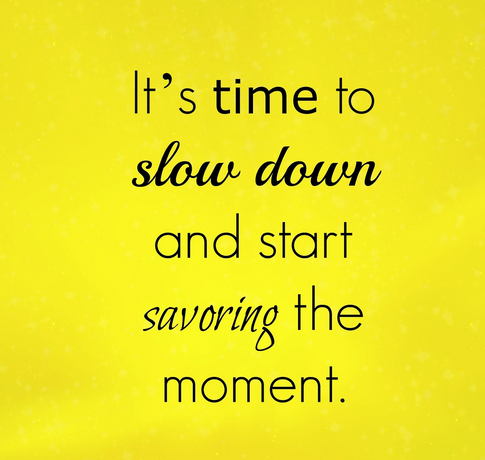Savoring Philosophy and Definition
“Savoring” in philosophy and psychology refers to the process of fully appreciating and enjoying positive experiences or moments. It involves being mindful and present, allowing oneself to deeply experience and relish the emotions and sensations associated with a particular event or activity.
Read More RETIREES CHANGING THE WAYS THEY LOOK AT THINGS

“Retirement is not the end of the road. It is the beginning of the open highway.”
– Unknown
The philosophy of saving retirement is a fascinating topic! It often involves several key elements.
Read More Benefits of Savoring Your Retired Life

“Mindfulness isn’t difficult. We just need to remember to do it.”
– Sharon Salzberg
Mindfulness is the practice of being fully present and engaged in the moment, aware of your thoughts, feelings, and surroundings without judgment. It involves paying attention to your experiences as they unfold, which can help you manage stress, improve focus, and enhance overall well-being. It’s like taking a mental step back and observing your thoughts and emotions without getting caught up in them. Mindfulness is about being fully present and appreciating each moment without rushing through it.
Read More The Virtue of Peacefulness

“Gratitude can transform common days into thanksgivings, turn routine jobs into joy, and change ordinary opportunities into blessings.”
– William Arthur Ward
Gratitude is the quality of being thankful and showing appreciation for the positive aspects of life. It’s about recognizing and acknowledging the good things, whether big or small, that we receive from others or experience in our daily lives. Practicing gratitude can help foster positive emotions, improve relationships, and enhance overall well-being. Reflecting on and appreciating the experiences and opportunities that retirement brings is about gratitude.
Read More Positive Affirmations in Retirement

“The purpose of life is not to be happy. It is to be useful, to be honorable, to be compassionate, to have it make some difference that you have lived and lived well.”
– Ralph Waldo Emerson
Purpose is the reason for which something is done, created, or exists. It’s the driving force behind actions and decisions, giving direction and meaning to life. Having a clear sense of purpose can motivate individuals to pursue goals, overcome obstacles, and find fulfillment. In a personal context, purpose often relates to one’s values, passions, and aspirations. It helps answer the question, “Why do I do what I do?” Finding new activities, hobbies, or volunteer work can provide a sense of fulfillment and meaning.
“The energy that we exchange with others through authentic connection has the power to transform lives.”
– Anese Cavanaugh
Read More Practicing Savoring in Retirement

Connection is the bond or link between people, things, or ideas. It involves creating relationships, whether emotional, social, or intellectual, and finding common ground. Connection can foster a sense of belonging, trust, and understanding, and it’s fundamental to building strong communities and meaningful interactions. In a personal context, connection often refers to the relationships we form with others through shared experiences, communication, and empathy. Whether it’s with family, friends, colleagues, or even strangers, these connections enrich our lives and contribute to our well-being. Maintaining and nurturing relationships with family, friends, and the community is very rewarding in retirement.
“Self-care is not selfish. You cannot serve from an empty vessel.”
– Eleanor Brown
Read More Mindfulness and Presence Embracing the Moment

Self-Care is the practice of taking action to preserve or improve one’s own health, well-being, and happiness. It involves intentionally engaging in activities that nurture and replenish your physical, mental, and emotional states. Self-care can include a wide range of activities such as:
- Physical Self-Care: Exercising, eating nutritious food, getting enough sleep, and attending regular medical check-ups.
- Mental Self-Care: Engaging in hobbies, reading, learning new skills, and practicing mindfulness or meditation.
- Emotional Self-Care: Connecting with loved ones, expressing your feelings, setting boundaries, and seeking therapy or counseling when needed.
“Savoring is the art of consciously engaging in thoughts or behaviors that heighten the effect of positive experiences.”
Hilary T. Smith
The goal of self-care is to maintain a healthy balance in life, reduce stress, and enhance overall well-being. It’s about recognizing your needs and taking steps to ensure they are met. Prioritizing health and well-being through exercise, proper nutrition, and mental health practices are so valuable.
“Adaptability is about the powerful difference between adapting to cope and adapting to win.”
– Max McKeown
Read More Unique and Eclectic Lifestyles of Retirees: Embracing Individuality

Adaptability is the ability to adjust and thrive in changing circumstances or environments. It’s a crucial skill that involves being open to new ideas, flexible in your approach, and resilient in the face of challenges. People who are adaptable can efficiently manage transitions and uncertainties, whether in personal or professional settings. Adaptability includes being able to: learn new skills quickly, embrace change positively, problem-solve creatively, stay composed under pressure, and pivot strategies when necessary.
It’s all about staying agile and resilient in a world that’s constantly evolving. Embracing change and being open to new experiences and challenges reflect savoring moments.
There are different types of savoring:
“The essence of pleasure is spontaneity, but the anticipation of pleasure is a very refined, subtle joy.”
– F. Scott Fitzgerald
Read More Retirees Doing What Retirees Do: Savor Retirement

Anticipatory Savoring Enjoying an upcoming positive experience by looking forward to it.
Anticipatory savoring in retirement refers to the process of looking forward to and relishing the upcoming phase of life after one’s professional career ends. It involves envisioning and mentally enjoying the possibilities and pleasures that retirement might bring, such as more leisure time, travel, hobbies, or spending quality moments with loved ones.
By engaging in anticipatory savoring, retirees can enhance their sense of happiness and well-being even before retirement actually begins. It helps create a positive outlook, reduces anxiety about the future, and sets the stage for a fulfilling and enjoyable retirement experience.
Imagine the excitement of planning all the things you’ve always wanted to do, and savoring the thought of newfound freedom and adventures ahead. It’s like having a taste of the joy before it even arrives!
It defines savoring in retirement as the process of looking forward to and enjoying the thought of the upcoming retirement phase. It involves envisioning the positive experiences and possibilities that retirement might bring, such as more leisure time, travel, hobbies, or spending quality moments with loved ones. By engaging in anticipatory savoring, retirees can enhance their sense of happiness and well-being even before retirement begins.
Read More Self-Care and Retirement

Anticipatory savoring helps create a positive outlook, reduces anxiety about the future, and sets the stage for a fulfilling and enjoyable retirement experience. It’s like having a taste of the joy before it even arrives.
Imagine the excitement of planning all the things you’ve always wanted to do and savoring the thought of newfound freedom and adventures ahead. Anticipatory savoring is about mentally enjoying the upcoming phase and relishing the anticipation of the positive experiences that retirement will bring.
“Savor the moments that are warm and special and giggly.”
– Sammy Davis Jr.
Read More Courage to Accept Acceptance in Retirement

In-the-Moment Savoring in retirement involves fully engaging with and appreciating the present experiences and joys that come with being retired. It’s about being mindful and present, allowing oneself to truly enjoy and relish the activities, moments, and sensations that are occurring right now. Being fully present and engaged in the positive experience as it happens reflects savoring the moments.
For retirees, this could mean:
- Enjoying a leisurely morning coffee while soaking in the sunrise
- Immersing oneself in a favorite hobby or new interest without the constraints of time. (Writing these essays provides savoring moments for me!)
- Savoring moments with family and friends, cherishing the connections and conversations
By practicing in-the-moment savoring, retirees can enhance their sense of fulfillment and happiness, making the most of their retirement years.
In-the-moment savoring is all about being fully present and appreciating the experiences you are currently engaged in. For retirees, this means taking the time to truly enjoy and derive satisfaction from the various activities and moments that make up daily life.
“The best way to capture moments is to pay attention. This is how we cultivate mindfulness.”
– Jon Kabat-Zinn
Read More Letting Go In Retirement

Mindful Presence
- Being aware of your surroundings, thoughts, and feelings without judgment.
- Practicing mindfulness techniques, such as focusing on your breath or using your senses to anchor yourself in the present moment.
- Letting go of worries about the past or future and fully experiencing the “now.”
“Gratitude is the fairest blossom which springs from the soul.”
– Henry Ward Beecher

Gratitude and Appreciation
- Expressing gratitude for the simple pleasures and blessings in life.
- Acknowledging and appreciating the beauty and joy in everyday moments.
- Keeping a gratitude journal to regularly reflect on and savor positive experiences.

Engaging All Senses
“The senses, being the explorers of the world, open the way to knowledge.”
– Maria Montessori
- Paying attention to the sensory details of your experiences—sights, sounds, smells, tastes, and textures.
- Enhancing your sensory awareness by consciously noting the sensations and feelings associated with different activities.

Slow Living
“Slow down and everything you are chasing will come around and catch you.”
– John De Paola
- Adopting a slower pace of life to allow for deeper enjoyment of each moment.
- Prioritizing quality over quantity in activities and interactions.
- Taking the time to fully immerse yourself in experiences without rushing.

Connection and Community
“We are only as strong as we are united, as weak as we are divided.”
– J.K. Rowling
- Building and nurturing meaningful
- Relationships with family, friends, and the community.
- Savoring the moments of connection, conversation, and shared experiences with loved ones.
- Volunteering or participating in social groups to enrich your sense of belonging and purpose.
Personal Fulfillment
“Personal fulfillment is about making progress towards your goals and values, not perfection.”
– Unknown
- Engaging in activities and hobbies that bring you joy and satisfaction.
- Exploring new interests and passions that you may not have had time for previously.
- Finding fulfillment in creative pursuits, physical activities, or intellectual challenges.
Practical Tips for In-the-Moment Savoring:
- Take Deep Breaths: Before engaging in an activity, take a few deep breaths to center yourself and prepare to fully enjoy the experience.
- Set Intentions: At the start of each day or activity, set the intention to be present and savor the moments.
- Pause and Reflect: Throughout your day, take brief pauses to reflect on and appreciate the positive aspects of your experiences.
- Limit Distractions: Reduce distractions by setting aside dedicated time for savoring activities, free from interruptions.
In-the-moment savoring is about making the most of your retirement by truly living and experiencing each moment to its fullest. It’s a practice that can lead to greater happiness, well-being, and a deeper appreciation for life’s simple.
“The best way to pay for a lovely moment is to enjoy it.”
– Richard Bach
Reminiscent Savoring is the act of recalling and reliving past positive experiences to enhance current well-being and happiness. It involves thinking back to joyful, meaningful, or significant moments from the past and allowing oneself to fully appreciate and enjoy those memories. This practice can bring about positive emotions, a sense of nostalgia, and a deeper appreciation for one’s life journey.
By reminiscing, we can strengthen the emotional impact of our positive experiences and carry those feelings into the present. Whether it’s looking through old photos, sharing stories with loved ones, or simply taking a moment to reflect on happy times, reminiscent savoring helps us reconnect with the joy and meaning in our lives. Reflecting back on past positive experiences and reliving the joy and satisfaction they brought.
In summary, savoring is a concept within positive psychology that focuses on the mindful appreciation and enjoyment of life’s experiences. The philosophy of savoring involves three key dimensions:
- Anticipatory Savoring: This is the pleasure derived from looking forward to a positive event or experience. For example, the excitement and joy you feel when planning a vacation or anticipating a special celebration.
- In-the-Moment Savoring: This involves fully experiencing and appreciating the present moment as it unfolds. It means being mindful and engaged in the here and now, whether it’s enjoying a delicious meal, taking a walk-in nature, or spending time with loved ones.
- Reminiscent Savoring: This dimension focuses on reflecting on and reliving past positive experiences. It can involve reminiscing about happy memories, looking at old photographs, or sharing stories from the past with friends and family.
The philosophy of savoring encourages individuals to be more mindful and present in their daily lives, to take time to appreciate the small joys, and to extend the positive emotions associated with both past and future experiences. By practicing savoring, people can enhance their overall well-being and increase their sense of happiness and fulfillment.





